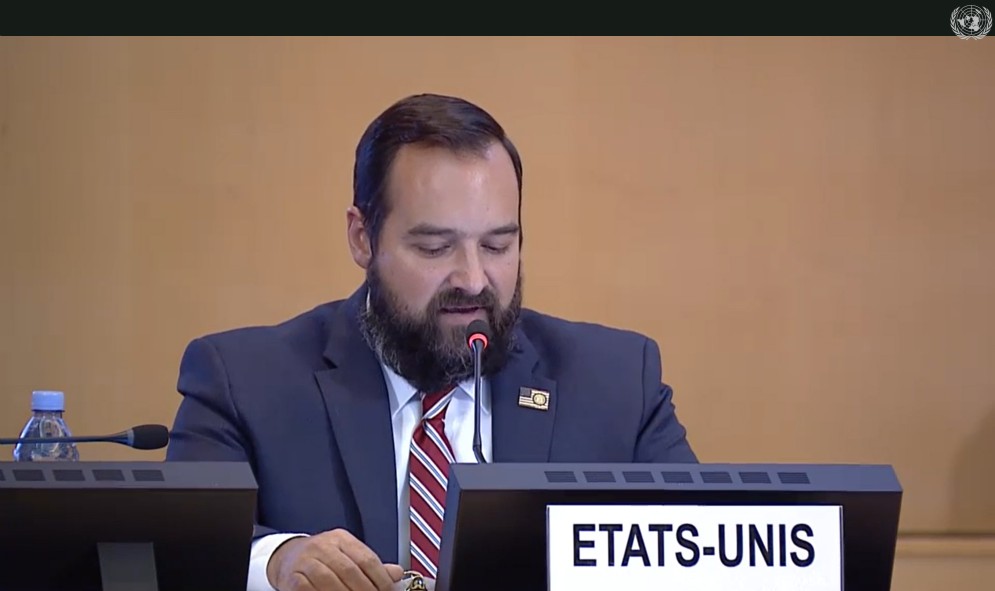Each one of the 193 member states of the United Nations must go through the Universal Periodic Review mechanism of the Human Rights Council every four years. During the process the member state under review has the opportunity “to declare what actions they have taken to improve the human rights situations in their countries and to fulfil their human rights obligations.” (OHCHR) The process also gives the other member states an opportunity to raise questions and make recommendations in this regard, which is done orally during a half-day meeting. The country under review presents a written report which focuses on how they have addressed the recommendations of the previous review; the working group gathers information which had been offered by different experts on human rights issues during the previous four years; and NGOs contribute their critique of the human rights situation in the country. All of this is part of the review process. Then the country under review is given a written report to which it must respond within a certain timeframe.
In the course of the third Periodic Review of the United States during the Human Rights Council meeting in November 2020, it was fascinating to note the difference between the written report of the country and the issues raised by other countries or NGOs. In its written report, the United States of America points to the legislation and executive orders which are meant to protect and uphold human rights, while avoiding any reference to what is happening on the ground. On the other hand, the information gathered by the working group and that offered by NGOs and other stakeholders, points to actual events and situations, such as white supremacist gatherings, threats against the media, and the separation of families at the southern border.
In the recommendations offered by many countries during the meeting itself, it was interesting to hear how many countries, during their 90-second opportunity to speak, focused on the same issues. The U.S. received more than 300 recommendations, some more focused on domestic issues: systemic racism, xenophobia, racial profiling, excessive use of force by police, the death penalty. Others encouraged the U.S. to become less isolationist: rejoin the Human Rights Council and the Paris Climate Accord, end sanctions against members of the International Criminal Court. The U.S. was encouraged to ratify several international treaties which they have already signed: the Convention on the Elimination of all Forms of Discrimination against Women (CEDAW), the Convention on the Rights of the Child (CRC), the Convention on the Rights of Persons with Disabilities (CRPD) and the International Covenant on Social, Economic and Cultural Rights (ICSECR).
Countries noted that the U.S. needs to assure that all have access to healthcare and reduce the maternal mortality rate which has been increasing over the past five years and is the worst among industrialized nations. Many spoke of the importance of addressing gun violence, bringing an end to gross inequality and poverty, and assuring that all citizens have the right to vote without any discrimination or attempts at disenfranchisement.
The review concludes with a written report and recommendations from the Human Rights Council which be the basis for the next Universal Periodic Review of the country.

